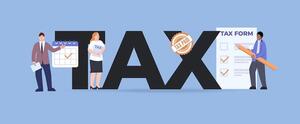Reporting Crypto Taxes: The Do’s and Don'ts for Filing with the IRS
Body
Crypto taxation can be complicated, but reporting your crypto taxes to the IRS is an important task that should be considered. This blog post will cover the dos and don'ts of reporting cryptocurrency taxes and provide tips for avoiding common mistakes.
Dos for Reporting Crypto Taxes
- Keep Accurate Records
Accurate records of your cryptocurrency transactions are essential for accurately reporting your cryptocurrency taxes. It is important to track your taxable events, such as buying, selling, exchanging, and earning crypto through mining or staking, as well as the dates, amounts, and values of these transactions.
- Understand IRS Forms
Understanding the IRS forms needed for reporting cryptocurrency taxes is crucial. These forms include Form 8949, Schedule D, and Form 1040. Knowing how to fill out these forms accurately with your crypto transactions is important.
- Seek Professional Guidance
If you need help with reporting your cryptocurrency taxes, it is recommended to seek professional help. Input from a qualified tax professional who is knowledgeable about local cryptocurrency regulations is essential.
Don'ts for Reporting Crypto Taxes
Fail to Report: Failing to report your crypto taxes can result in penalties and fines from the IRS. Reporting your taxable events, including buying, selling, exchanging, and earning crypto, is vital.
Underreport: Underreporting your crypto taxes can also result in penalties and fines. It is important to accurately report your gains and losses and include all relevant information.
Submit Inaccurate Information: Submitting inaccurate information on your tax forms can result in penalties and fines. It is important to double-check all of your information before submitting your tax forms to the IRS.
How to Avoid Common Mistakes
Mistakes in submitting cryptocurrency taxes might result in fines and land you in considerable legal trouble. Some measures to take are as follows.
- Use a Crypto Tax Software: One of the easiest ways to avoid common mistakes is to use a crypto tax software like Descrypt. These software solutions streamline the tax reporting process and help you accurately calculate your tax liability. Descrypt, for example, uses precise data to automatically track and calculate your tax obligations, making it easy to file your taxes correctly and on time.
- Hire a Tax Professional: Consult a tax expert if you have questions about filing taxes based on your cryptocurrency holdings. A professional tax professional can guide you, explain the rules in plain English, and ensure your returns are timely and accurate.
- Stay Up-to-Date with Tax Regulations: The IRS is constantly updating its regulations and guidelines for crypto taxes. It's important to stay informed and up-to-date with the latest changes to avoid mistakes. You can do this by regularly checking the IRS website or following reputable tax experts on social media.
- Keep Detailed Records: Detailed records of your crypto transactions are crucial for accurate tax reporting. Make sure to record the date, amount, and type of each transaction and any fees or commissions you paid. This information will be needed when filling out IRS forms like Form 8949. Using Descrypt will also help with this.
- Double-Check Your Information: Before submitting your tax return, double-check all your information for accuracy. This includes your personal information, crypto transactions, and tax calculations. Even a small error can result in penalties or legal issues with the IRS.
Following these tips can avoid common mistakes and ensure that your crypto taxes are reported accurately and on time.
Wrapping Up
Filing your crypto taxes can be daunting, but it doesn't have to be. By following the dos and don'ts of reporting cryptocurrency taxes and avoiding common mistakes, you can ensure your tax filing process goes smoothly. Remember to keep accurate records, understand IRS forms, and seek professional help when needed.
To simplify the tax filing process, consider using Descrypt, a trusted crypto tax software offering accurate reporting and tax optimization strategies. With Descrypt, you can generate your tax report in minutes, saving you time and reducing the risk of errors.














Comments